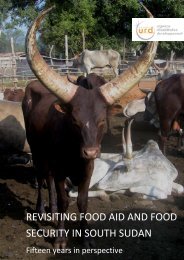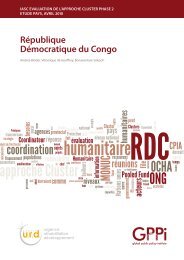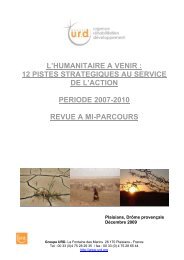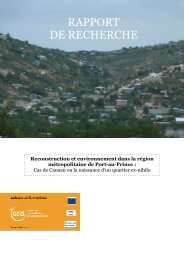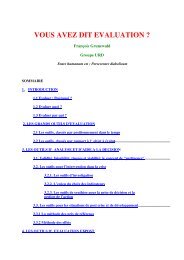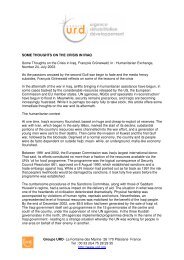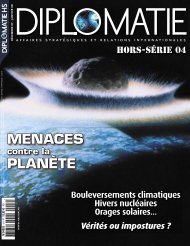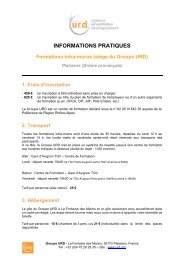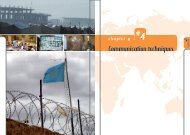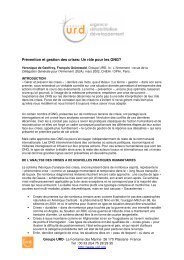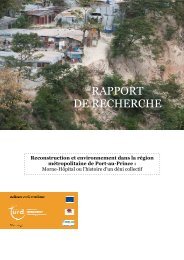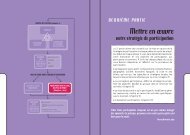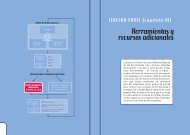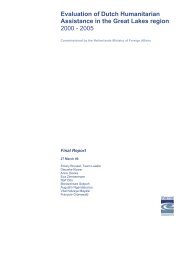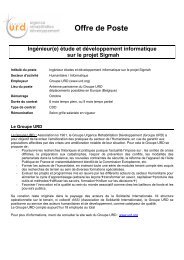Kabul Urban Survey - Groupe URD
Kabul Urban Survey - Groupe URD
Kabul Urban Survey - Groupe URD
Create successful ePaper yourself
Turn your PDF publications into a flip-book with our unique Google optimized e-Paper software.
4.4 <strong>Kabul</strong> urban policy issues according to UN agencies and<br />
international aid<br />
• Inclusive urban management<br />
UN-HABITAT is working with civil society, local authorities and the government to make<br />
urban development broad-based and inclusive.<br />
At the national level<br />
UN-HABITAT has supported the government in preparing an urban housing policy and<br />
continues to serve as the secretariat to the <strong>Urban</strong> Management Consultative Group.<br />
UN-HABITAT is working on a city governance assessment with a “City profile” survey, which<br />
has been piloted in Kandahar. Subsequently a similar initiative has been launched in <strong>Kabul</strong>.<br />
At the local level<br />
UN-HABITAT has been working with the <strong>Kabul</strong> Municipality (as it has done previously with<br />
the municipalities of Kandahar, Jalalabad, Herat, and Mazar-e Sharif) with a view to<br />
strengthening their management and implementation capacity.<br />
4.5 <strong>Kabul</strong> urban social and vulnerability analysis<br />
The main objective of the international presence in Afghanistan is to bring aid to the affected<br />
population. These actors require a variety of different social research assessments in order<br />
to design programmes, specific projects or strategic programmes for urban rehabilitation, or<br />
to define a system for supplying basic services. Several international organisations have<br />
contributed to shedding light on the urban vulnerability situation.<br />
- The independent research institute, Afghanistan Research and Evaluation Unit (AREU)<br />
has carried out research on livelihoods, including a study on <strong>Kabul</strong>, “<strong>Urban</strong> livelihoods<br />
and community based needs” 18 .<br />
- In 2006, the UNHCR conducted a case study on <strong>Kabul</strong> 19 and MEDAIR launched a similar<br />
initiative for ECHO 20 .<br />
- In 2006, ACF is updating its 2003 “<strong>Kabul</strong> Vulnerability Mapping”.<br />
18 Schutte S., “<strong>Urban</strong> livelihoods and community based needs”, AREU survey & publication:<br />
Afghanistan Research and Evaluation Unit<br />
19 Levron E., Modes de subsistance des réfugiés en milieu urbain, <strong>Kabul</strong> Field case, Afghanistan-<br />
EPAU/2006/03-2 for UNHCR<br />
20 ECHO/MEDAIR, “<strong>Kabul</strong> vulnerable programme” as a 2006 evaluation<br />
Page 38



